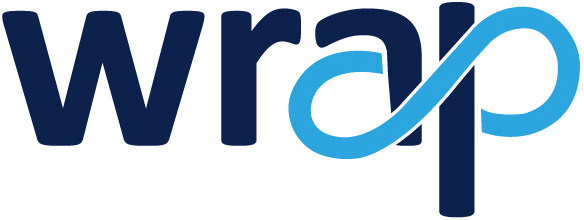As a trusted partner of governments, businesses and NGOs around the world, WRAP uses its expertise and evidence to create tailored programmes that help deliver sustainability goals.
We are a founding member of the Champions 12.3 network, a global coalition driving the delivery of UN Sustainable Development Goal (SDG) 12.3 to reduce food waste.
We are driving the delivery of UN Sustainable Development Goal 12.5 to substantially reduce waste generation. We are working with countries, regions and cities to increase recycling rates and to re-define how we re-use and recycle materials.
Roadmap to achieve UN Sustainable Development Goal Target 12.3
In September, World Resource Institute (WRI) and WRAP published their second assessment of progress toward achieving UN Sustainable Development Goal Target 12.3. The report sets out a roadmap to achieving the target and evaluates global progress to date by countries and companies.
New developments on food loss and waste
In March 2018, we opened discussions with The World Bank on the importance of food loss and waste initiatives. WRAP presented the concept of a ‘Food Smart City’ to 150 delegates at The World Bank’s Agriculture and Food Forum and participated in a debate on the importance of tackling food loss and waste globally.
Supporting EU food waste measurement
WRAP is working with The Directorate-General for Health and Food Safety (DG SANTE) on a cost-effective but reliable approach for Member States to measure and report on food waste. Part of our work is to ensure that the EU approach is aligned with the global Food Loss and Waste Standard.
Four national frameworks for action
Image: REFRESH - Tim Ottenstein
In June, the EU-funded REFRESH project, in which WRAP is a partner, published progress made with four National Frameworks for Action in Germany, Spain, Hungary and the Netherlands. Achievements included a cross-border project in Spain which identified where peaches and nectarine were lost along the supply chain. The Netherlands launched a new initiative called ‘United against food waste’. A baseline figure for food waste is being progressed in Hungary and Germany is looking at mitigating the challenges on measuring food waste.
Online community to tackle food waste in EU
“On this important day dedicated to celebrating food, I am pleased to announce that we have a new ally in the battle against food waste: the REFRESH Community of Experts."
Commissioner Vytenis Andriukaitis, European Commissioner for Health and Food Safety
On World Food Day, WRAP launched a new digital network to encourage collaboration amongst experts on the issue of food waste. The Community of Experts empowers individuals, organisations and nations to share the skills, knowledge and resources needed to act against food waste. With 120 experts signed up and 80 resources online, the platform has already proven to be a powerful convening force.
Better Food for More People
Image: World Food Summit 2017
In August 2017, WRAP’s CEO Marcus Gover spoke about ‘The Food Waste Fight: How we can engage all stakeholders’ at the annual World Food Summit – Better Food for More People in Copenhagen. The Summit explored new ways to solve the critical challenges caused by the way we produce and consume food.
Best practice in food waste at sustainable consumption and production workshop
In June, WRAP presented to officials from the G7 countries at a workshop organised by the Japanese and German governments. We outlined the importance of supporting developing countries with both financial and technical expertise to measure and reduce food waste.
WRAP has continued to support governments and businesses around the world to create food waste strategies that work and align with UN SDG 12.3:
- In June, WRAP explored the possibility of a South African voluntary agreement on food waste. We joined 150 representatives in Pretoria for the first global conference of the One Planet Network on Sustainable Food Systems.
- Also in June, WRAP presented at the Singapore Packaging Agreement 10th Anniversary Packaging Conference in Singapore. WRAP further developed its relations with the Singapore Ministry of Environment and Water Resources, Singapore National Environment Agency, and the British High Commissioner to Singapore, and NTUC (National Trade Union Congress) Fairprice – the largest co-operative supermarket in Singapore.
- In August, Minister Ochoa and Edda Fernandez from the Ministry of Environment and Natural Resources in Mexico, visited WRAP to discuss our food waste and resource management work. Along with meeting WRAP staff, they also gained insight from Courtauld 2025 signatory Nestlé as well as Baxter Storey and Natural Capital Partners.
- WRAP contributed to the consultation on a food waste strategy for the Department of the Environment and Energy in Australia which was published in November.
- The International Climate Initiative (IKI) funded a project on sustainable tourism in Dominican Republic, St Lucia, Mauritius and The Philippines. WRAP provided the analysis and recommendations on how to reduce the environmental impact of tourism.
- Developing food waste strategies and measurement of food loss and waste is pivotal to delivering projects in Canada. We are advising the Environment and Climate Change Canada (ECCC) on their food waste strategy. We are also developing a practical guide to measuring food waste across Mexico, US and Canada.
Tesco expands food waste work to Central Europe
Image: Tesco
WRAP’s Dr Richard Swannell spoke at a food waste conference in Bratislava organised by Tesco Central Europe. The launch was co-branded Tesco and LFHW and involved businesses, Tesco suppliers and ministers and civil servants from Central Europe. This event marked the start of LFHW and Tesco working together across their stores in Hungary, the Czech Republic, Slovakia and Poland. LFHW is now being used in nine countries around the world.
Small change, big difference
Resource London, a partnership between WRAP and the London Waste and Recycling Board, together with Groundwork London launched TRiFOCAL’s Small Change Big Difference campaign. It was designed to help Londoners make a big difference to their health, pockets and the planet through making small changes. Activities included learning sessions for schools and community groups, hosting food based activities, workshops and demonstrations. We are now working with cities across Europe to share our learning.
Looking ahead
We will continue to work with countries and companies around the world to drive the delivery of UN Sustainable Development Goals 12.3 and 12.5. We are prioritising work with those countries and companies that have the greatest potential to deliver change.

